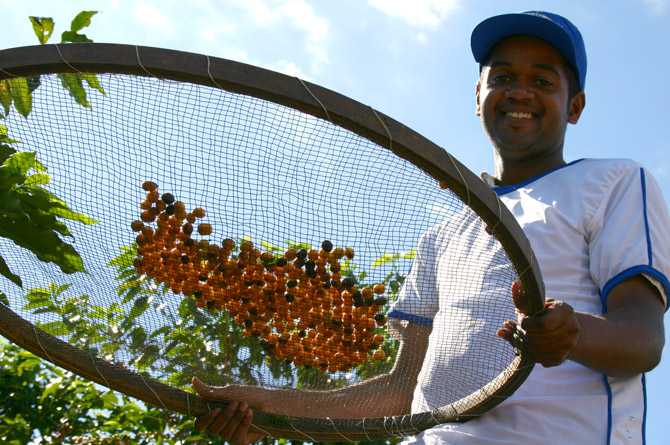SAO PAULO, Brazil – Arabica coffee prices swung widely in the Brazilian market in March, but, on the average of the month, quotes dropped. When prices faded, which occurred more frequently in the second fortnight, pressure came majorly from the decreases in the future contracts for this variety and the dollar depreciation against Real. On the other hand, the slight increases sporadically observed were linked to the absence of sellers in the market and the days when international prices and the dollar increased.
Between February 26 and March 31, the CEPEA/ESALQ Index for arabica coffee prices (delivered to São Paulo city) dropped 38.06 Reais per bag (-5.1%), closing at 708.44 BRL (125.97 USD)/bag on March 31.
At the New York Stock Exchange (ICE Futures), futures were influenced by technical movements and concerns about the effects of an increase in the number of covid-19 cases in Europe.
With prices mostly dropping, liquidity was low in the Brazilian market in March. Besides, the increase in the number of covid-19 cases in Brazil limited deals. According to agents, with the increase in restrictive measures in most states, agents stayed away from the market.
Cepea collaborators believe that, as a high amount of coffee from the 2020/21 crop has already been sold, and with the current health issues in Brazil, farmers should only return to the market as the harvesting of the 2021/22 crop nears, in May.
As for crops, rainfall was lower in most coffee-producing regions in late March, but crops continued in good conditions.
Robusta coffee prices decreased in March too. Between February 26 and March 31, the CEPEA/ESALQ Index for the type 6, screen 13, Espírito Santo State, dropped 7.07 Reais per bag (-1.55%), to 448.15 BRL (79.68 USD)/bag on March 31.
As in the market of arabica coffee, the devaluation of robusta was linked to the dollar depreciation and decreases in the futures of this variety. At the London Stock Exchange (ICE Futures), besides technical factors, futures were influenced by perspectives for higher production in Brazil in the 2021/22 season.
While a crop failure is expected in Rondônia, due to the drops of flowers and fruitlets in 2020, in Espírito Santo, the amount of coffee to be harvested next season should be higher than that from 2020/21, due to better weather conditions and higher crop management. In both states, the weather has been favorable to beans filling and maturation.
In Rondônia, although some beans were being hand-picked in late March, the harvesting of the 2021/22 crop should officially begin in the coming weeks. In Espírito Santo, activities are expected to begin in the first fortnight of April, stepping up later in the month.










